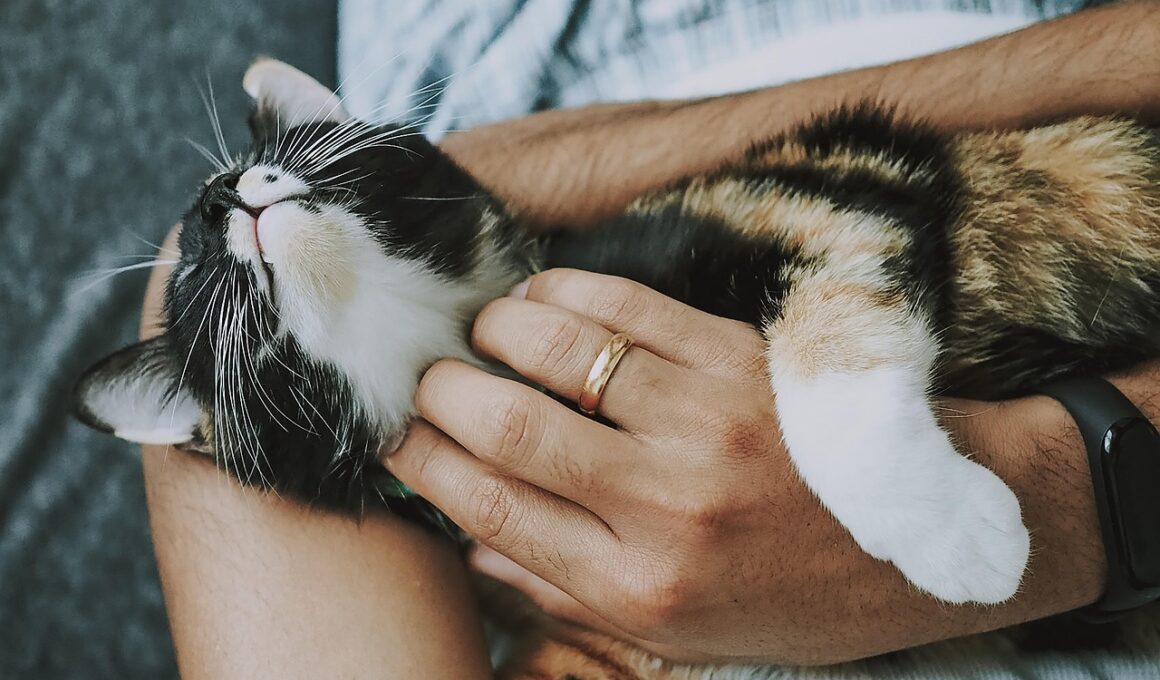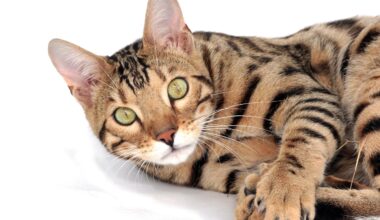The Importance of Early Dental Care for Cats
Dental disease is a silent epidemic affecting the health and lifespan of cats. It begins with gingivitis, an inflammation of the gums that can progress to more severe conditions like tooth loss and oral infections. Research shows that nearly 70% of cats over three years old are afflicted by some form of dental disease. Poor dental hygiene leads to bacteria in the mouth, which can subsequently enter the bloodstream and affect major organs such as the heart and kidneys. At its core, dental disease impairs a cat’s ability to eat, leading to nutritional deficiencies and deteriorating overall health. Regular dental check-ups can catch early signs of issues, allowing for preventive measures. Preventative care includes professional cleanings as well as home dental hygiene like brushing. Pet owners should consult veterinarians to create a dental care plan tailored to their cat’s needs. Being proactive can significantly uplift the quality of life for felines by ensuring optimal oral health and longevity. Ultimately, early intervention is key in maintaining not just dental health, but overall well-being.
Understanding the Consequences of Neglected Dental Health
Neglecting dental care for cats can lead to severe consequences that go beyond bad breath. As periodontal disease advances, a cat may suffer from pain, which could affect their behavior, making them irritable or withdrawn. They may stop eating or exhibit difficulty while chewing, resulting in weight loss and other health complications. Chronic oral infections can pave the way for more systemic diseases, particularly affecting the heart and kidneys. Signs to watch for include bleeding gums, excessive drooling, and pawing at the mouth. Identifying these symptoms early can be crucial. Regular veterinary examinations often include dental evaluations, allowing for timely intervention. When left unchecked, dental disease can lead to increased veterinary bills, as treatment becomes more complex and invasive over time. Supportive home care can include dental chews, specially formulated cat food, and consistent oral hygiene routines. Encouraging proper dental health starts with a commitment to regular veterinary visits and understanding the importance of oral care. Pet owners must prioritize their cat’s dental health to ensure a better and longer life, as prevention is always more effective than treatment.
In addition to health risks, neglected dental care can impact a cat’s quality of life significantly. Dental pain can prevent cats from engaging in activities they once enjoyed, such as play and socializing with fellow pets or humans. A cat in pain may become isolated, preferring to hide instead of interacting with its family. Moreover, dental disease can lead to behavioral changes, which can strain the bond between cat and owner. If a cat is not properly cared for, it can also lead to increased anxiety and stress, further complicating their health status. Developing a routine that includes daily dental care is important for prevention. This could include brushing your cat’s teeth or providing dental treats specifically designed for oral health. Choosing the right products is crucial as some treats are not effective. Always consult your veterinarian for recommendations tailored to your cat’s specific needs. Additionally, be observant of any changes in eating habits or mood, which can signal dental pain. Awareness and early intervention can prevent complications that could arise from untreated dental issues.
Promoting Good Dental Hygiene at Home
Promoting dental hygiene at home is an essential part of your cat’s health regimen. Establishing a dental care routine will not only help maintain dental hygiene but also strengthen your bond with your cat. Start slowly; introduce tooth brushing gradually to avoid overwhelming your feline friend. Use a toothbrush specifically designed for cats and toothpaste made for pets, as human toothpaste can be toxic. Aim for brushing sessions to occur a few times a week; however, daily brushing is ideal for optimal oral health. In addition to brushing, consider incorporating dental treats and toys that promote chewing and help reduce plaque buildup. These products can be effective adjuncts to your home care routine. Always monitor your cat’s response to grooming practices, as some may be more receptive than others. Another useful tip is to schedule regular veterinary visits to assess oral health and perform cleanings as needed. Don’t hesitate to ask your veterinarian about additional measures to ensure dental hygiene, as they can provide expert insights tailored to your cat’s individual needs.
The role of diet in dental health cannot be overstated. A balanced diet contributes significantly to overall well-being, including dental health. Cats who consume dry kibble instead of wet food may experience less plaque accumulation. Various brands also offer specialized dental diets designed to help reduce tartar buildup. Consult your veterinarian when choosing the right food for your cat. It’s vital to feed cats according to their age and health conditions, as metabolic needs differ significantly between young and older cats. Additionally, be cautious of treats that are high in sugar, as these can exacerbate dental issues. Always check product labels before giving treats or food to ensure they promote good dental health. Fresh water should be readily available, as hydration is important for oral tissues. Another way to encourage healthy eating habits is to monitor portion sizes based on your cat’s weight to prevent obesity, which can also complicate dental health. In essence, a healthy diet works hand in hand with dental hygiene practices to help improve your cat’s overall health and increase life expectancy, forming a holistic approach.
Veterinary Support for Cat Dental Health
Veterinarian support is crucial for maintaining optimal dental health in cats. Schedule regular check-ups to monitor dental conditions, as many issues can go unnoticed until they become severe. During exams, vets look for warning signs such as gum inflammation, loose teeth, and signs of pain. Professional cleanings are also part of preventative care, as they can remove tartar buildup that home care may miss. Your veterinarian may recommend dental X-rays to examine the root health of your cat’s teeth and detect issues beneath the gum line. Additionally, they can provide tailored advice based on your cat’s age and health conditions. When necessary, vets may perform extractions for severely affected teeth to prevent further complications. Educating yourself about the potential risks and treatment options available can empower you as a pet owner. Staying informed helps to detect issues early, allowing for more effective treatment options. Collaborative efforts with your veterinarian can create a comprehensive dental care strategy that maximizes your cat’s health and longevity, reinforcing the importance of professional oversight in tandem with home care practices.
Ultimately, the importance of early dental care for cats cannot be overstated. It serves as a preventative measure that can dramatically enhance a cat’s quality of life. Early intervention strategies minimize the risks associated with dental diseases, allowing cats to enjoy healthy, pain-free lives. Being proactive involves not just regular check-ups but also consistent homecare routines, including brushing and dietary considerations. The connection between dental and systemic health is profound; ensuring strong oral health promotes overall vitality. Pet owners must educate themselves on recognizing the signs of dental problems to facilitate early detection and treatment. This proactive approach is crucial in managing their cats’ health effectively. Ultimately, the steps taken today can ensure a more robust and healthier tomorrow for our feline companions. Through this combination of professional support, informed home care, and dietary considerations, cat owners can play a significant role in promoting longevity. By prioritizing dental health, we not only extend the lifespan of our cats but also enrich their lives, providing them with the happiness they deserve.


